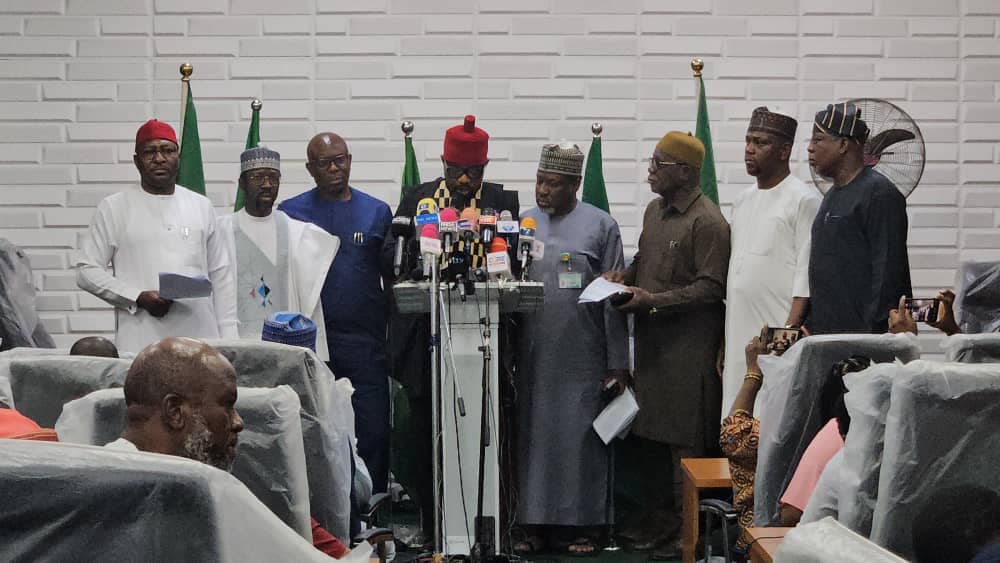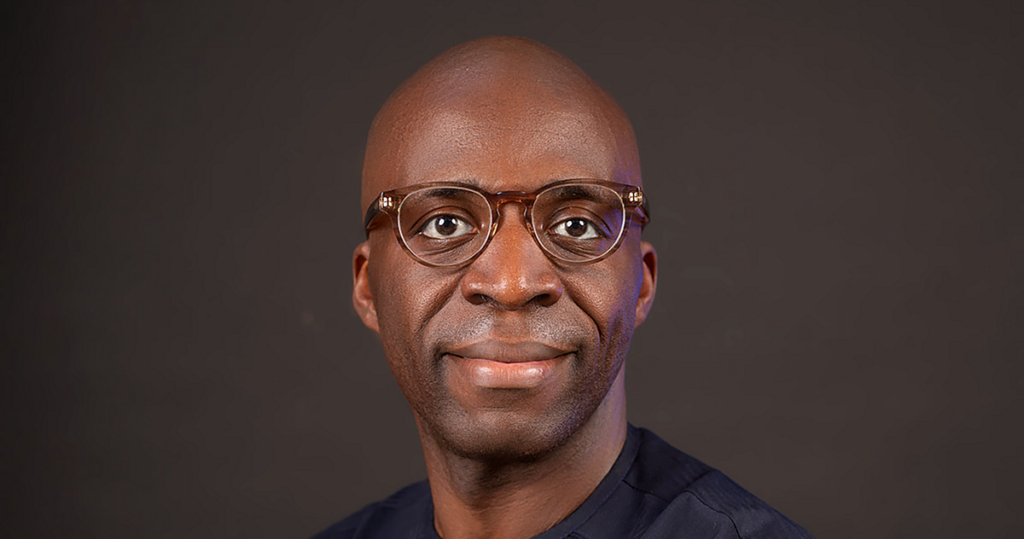
The flamboyant lifestyle of political office holders has consistently ridiculed the routine call on the citizenry to sacrifice and bear with the biting economic reality. Apparently in lieu of public discontent with the double standard, President Bola Tinubu on Tuesday slashed the number of personnel permissible on domestic and foreign trips. But Nigerians are asking for more sacrifices, with transparent and prudent use of public resources from top to bottom, KEHINDE OLATUNJI reports.
Since his administration came on board on May 29, 2023, President Bola Tinubu has been calling on Nigerians to tighten their belts and make more sacrifices because of strident economic policies he introduced.
The policies were hurriedly rolled out but without a thought-out plan or coping mechanism for the worst-hit masses. For instance, when the subsidy removal was announced, the prices of goods and services astronomically rose beyond the reach of many Nigerians. Also, the foreign exchange unification policy has further weakened the value of naira to the disadvantage of importers and consumers of foreign goods.
However, eight months after Nigerians have been subjected to excruciating pains occasioned by unfriendly economic policies, public office holders are still living in affluence without any cut in cost of governance and their lifestyle.
But, many have criticised the President’s constant call for Nigerians to bear with the acute austerity, pointing fingers at the absence of personal and governmental sacrifices in addressing economic challenges, while suggesting measures such as reducing the number of presidential jets by selling some, restricting foreign travels, promoting local goods and advocating a low profile government to gain public trust.
For instance, in Nigeria today, former presidents and governors still earn fabulous retirement and severance allowances. Some earn double, having served as both military and civilian presidents. Many governors also earn double retirement and severance allowances having served as former governor and senator. These go a long way to drain the nation’s resources.
However, the president on Tuesday directed a 60 per cent reduction in the number of his entourage to any state within the country, as well as officials on his entourage on international trips, apparently in response to the public outcry on high cost of governance.
The President said, henceforth, only 20 persons will accompany him on official foreign trips, five persons for the Vice President and Wife of the President. But for the local trips, 25 for his office, 15 for the VP while 10 for his wife.
Presidential Spokesman, Ajuri Ngelale, explained that the directive is to trim the massive bills that accrues due to allowances and estacodes for the delegation including security details coming from Abuja.
He said that “that the security outfits within states, whether it be police DSS, or branches of the military, will frontline his protective detail when he travels to those states, a major cost cutting initiative that will affect the Office of the Vice President as well as the Office of the First Lady.”
While some Nigerians described the announcement as belated, coming after the 2024 Appropriation Bill has been passed into law, others commended it and asked for more. Some eminent Nigerians believe that the cost of governance and ostentatious lifestyle of public officers is still high and does not reflect the hardships facing Nigerians.
Speaking with The Guardian, a chieftain of the Peoples Democratic Party (PDP) Segun Sowunmi, lamented that the executive and those in authority have not shown the people that they also want to trim some of their privileges to accommodate or to reflect the reality of the hardship going on in the country.
Sowunmi maintained that the president must start the sacrifice from where he is standing, within the ambit of the governance and personal sacrifices.
He said: “I think President Tinubu asking Nigerians to be patient is a little bit unempathetic. The people have been dealing with the consequences of the removal of the subsidy for close to eight months now. It does not take eight months to design a waybill for the rank and file of the civil service. The time it took them to come up with palliatives that are difficult to measure and track is too much compared to what it will take them to sit down and have an agreement on what is an implementable living wage.
“Nigerians were patient for eight years of former President Muhammadu Buhari and eight months of Tinubu, what Nigerians need now is succour; things to remove the hardship from them and help them to live life and not die while they are waiting. May God not let the Nigerian people wait in vain in hope of what may not come,” he said. He noted that democracy is a decision the electorates take on the day they vote and the consequence of that one day is for four years.
“So, whether we like it or not, we have gotten ourselves into an agreement where until another round of elections comes, we are going to have to deal with what we have ordered. As you lay in your bed, so are you going to lie on it.”
Sowunmi, however, noted that the new government needs some time to be able to get the job done, saying that it was a good thing that President Tinubu’s cabinet has been told that they are going to be evaluated, and Nigerians are eager to see the result of their incoming policies.
“The low-hanging fruit of government has to start immediately, the length and breadth of our country is reflective of the fact that our people are suffering. It was a very dull Christmas. Yes, I acknowledged and noticed that they gave some kind of honorarium for rail transporters to move in and out of the train as they wished.
He said that what Nigeria needs is an economic policy that produces a permanent solution, immediate succour and life abundant for the people, not tokenism or palliative, which in my opinion seeks to make everybody in the country beggars.
On his part, Lagos State governorship candidate of the Labour Party (LP) in the 2023 elections, Gbadebo Rhodes-Vivour, said that the most important factor in leadership is first having empathy for the people.
Second is capacity and third is courage and political will. “Empathy is the most important, for too long the ruling class and ruling elites have always told the people to tighten their belts, meanwhile, they are living lavishly and feeding fat on the commonwealth of the country and state, and that is not acceptable.”
He noted that there have been situations where budgets are being made for cars that the president already has, while huge amounts of money are being dedicated to renovate buildings.
Rhodes-Vivour said when compared with the government’s scholarship scheme for the youths, it’s almost the same amount and this shows that the priorities are very twisted. He noted that at such a time when there is difficulty, hunger and challenge in the land, the government should tighten their belts for the masses to have a better life.
Social Democratic Party’s (SDP) presidential candidate in the 2023 elections, Adewole Adebayo, noted that to be patient with the current administration is not a matter of choice, noting that the people have no other alternative than to allow President Tinubu’s administration to work its way through the problems confronting the government.
According to him, Tinubu’s presidency has not shown the sense of urgency that his governorship showed in Lagos in 1999, adding that the problems at hand are hydra-headed but have a single stem in good governance.
He said: “It is this same attitude of patience that the public has been showing since 1960. We have an abundance of patience but what we don’t have is the infinity of time to exercise patience because the problems are growing exponentially and may consume the patience of people, the people themselves and the lackadaisical government that has refused to set a sound template, articulate plans and work very hard. Whatever it takes, we will be patient with the government but our patience should be an investment in some viable efforts by the government.”
Youth Party (YP) National Publicity Secretary, Ayodele Adio, however, noted leaders should not be seen evading or abdicating their responsibilities, urging them to lead by example. “If the people are suffering, those in authority must be prudent, responsible, accountable and transparent. Unfortunately, this has not been the case.
“The president continues to talk about a collective burden whereas his administration has continued to be profligate. It is dishonest and it makes nonsense of our collective sacrifice.”
Also speaking, Associate Professor of Political Science, Lead City University, Dr Tunde Oseni, stated that one thing is for the government to call for sacrifice on the part of the people, another is for the same government to also sacrifice for the people to see, stressing that there has to be a balance.
Oseni said that given that economic recovery takes time and there is pressure on the global economy even in the developed countries, but if the president is asking the people to tighten their belts he should not loosen his own.
The don said it was important for the people to see that those who called for sacrifice are also on the path of making sacrifice, adding that this should reflect in terms of budgetary allocation to certain activities and overhead in running the government.
“Because if people see those in government display extravagance, they will feel like ‘but we were asked to tighten our belts’ and so there will be questions on the genuine intention of the government and this can also negatively affect the legitimacy of the government in power. So, whether at the federal, state or local government level, do what you ask people to do.
“Personal example, Professor Chinua Achebe, said is the hallmark of good leadership, government should show a personal example from the federal, state and the local government level so that the goodness of democracy can touch everyone and when there is a need for people to sacrifice, they will know that they are not sacrificing for nothing,” he said.











